Highlights of Our Xinyang Maojian Green Tea
- Origin and Authenticity: Sourced from Shihegang Town in Henan, known for its pristine conditions ideal for tea cultivation, our Xinyang Maojian tea assures authenticity and supreme quality.
Grades Offered: We offer three distinct grades – Second Grade, First Grade, and Premium – each crafted to meet varying preferences and tastes.
Appearance: Our Xin yang Mao jian tea leaves are fine and tightly rolled with a bright, greenish hue, reflecting their freshness. The Premium Grade Mao Jian tea features the youngest, most tender buds, providing a visually appealing delicate texture.
Aroma: The Second Grade exudes a fresh, grassy scent, while the First Grade offers a more pronounced sweet floral aroma. The Premium Grade captivates with an exceptionally refined fragrance, combining hints of fresh vegetation and subtle floral notes.
Flavor: Enjoy a light and refreshing taste with the Second Grade, perfect for daily drinking. The First Grade enhances this with a richer, slightly sweeter flavor profile, deepening the sensory experience. The Premium Grade offers the pinnacle of flavor, characterized by a silky smoothness and a complex, lingering sweet aftertaste.
Ingredients: Each leaf of Our Xin Yang Maoo Jian tea is meticulously selected to ensure it contains only the finest, pure Xinyang Maojian buds and leaves, free from additives and artificial flavors. Our tea is naturally rich in antioxidants, vitamins, and minerals, promoting health and vitality.
Brewing Quality: Designed for multiple infusions, our maojian tea’s flavor profile evolves with each steep, making every cup a new discovery. The leaves unfurl elegantly in hot water, providing both a visual spectacle and a testament to their quality.
Comparisons of Different Grades of Xinyang Maojian Green Tea
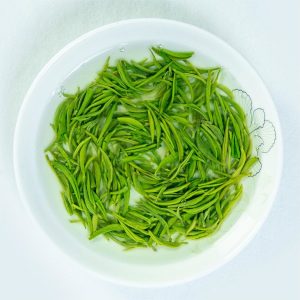
Premium Grade (特级) Xin Yang Mao Jian Tea
- Ingredients: The Premium Grade is harvested before the Qingming festival (April 4) and consists exclusively of the most tender, full young buds.
- Appearance: This grade of Xinyang Maojian tea features uniformly fine and tightly rolled leaves that display a vibrant, fresh green color. The buds are small and exhibit a glossy sheen, highlighting their premium quality.
- Aroma: The aroma of this mao jian green tea is intensely fresh and invigorating, dominated by floral scents with subtle hints of grassiness. It is refined and lingers, creating a memorable sensory experience.
- Flavor: The flavor of this maojian tea is exceptionally smooth and nuanced, characterized by a sweet undertone and a complex profile. The aftertaste is long-lasting and refreshingly pleasant, reflecting the sophistication of a top-tier tea.
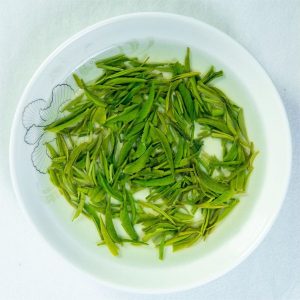
First Grade (一级) Xinyang Maojian Tea
- Ingredients: Harvested before the Qingming festival (April 4), this grade of mao jian tea includes one bud and one leaf per sprig, offering a slightly more mature flavor profile.
- Appearance: The leaves in the First Grade maojian tea are slightly larger than those in the Premium Grade and showcase a bright green color. The visible structure of the bud and leaf makes it visually appealing.
- Aroma: This grade of xin yang mao jian tea has a rich and vibrant floral aroma that is balanced with fresh vegetative notes. The scent is more pronounced than lower grades, providing depth without being overpowering.
- Flavor: The flavor is full-bodied and refreshing, yet slightly more potent than the Premium Grade. It strikes a crisp balance of sweetness and a mild vegetal finish, making it deeply satisfying.
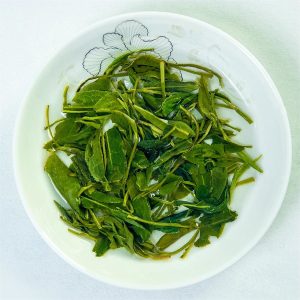
Second Grade (二级) Xinyang Mao Jian Tea
- Ingredients: Harvested before the Guyu season (April 20), the Second Grade consists of one bud and two leaves, incorporating slightly more mature leaves for a hearty flavor.
- Appearance: The appearance of the Second Grade mao jian tea is characterized by longer and more open leaves compared to the higher grades. They are a healthy green color and the additional leaf gives each sprig a robust structure.
- Aroma: The aroma of this xinyang maojian tea is straightforward and clean, predominantly grassy. While less complex than the higher grades, it remains pleasing and fresh.
- Flavor: This grade of maojian tea offers a strong, straightforward flavor with a pronounced grassy note and a refreshing, slightly astringent finish. It is ideal for those who enjoy a more assertive tea experience.
Why Our Xinyang Maojian Tea Tastes So Good?
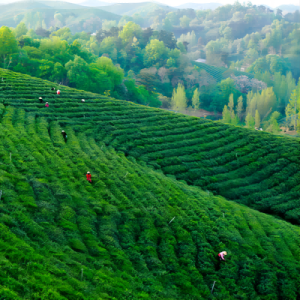
Optimal Terroir
Our Xinyang Maojian is cultivated in Shihegang Town, situated in the renowned tea-growing region of Henan. This mao jian area's unique climate—cool temperatures, frequent mist, and substantial altitude—creates an ideal environment for growing tea. These conditions slow the plant's growth, resulting in denser, flavor-packed leaves that yield a more aromatic and complex cup of tea
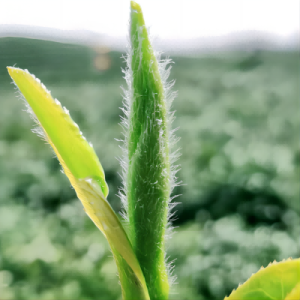
Traditional Harvesting
We adhere strictly to traditional harvesting methods, picking only the finest young buds and top two leaves just before the Qingming festival. This timing ensures that the maojian tea contains the highest possible levels of natural sweetness and aromatic oils. The meticulous selection process guarantees that only the best parts of the tea plant are used, which enhances the overall flavor profile
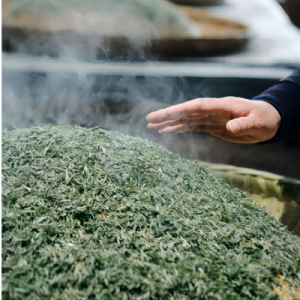
Expert Processing
After harvesting, our Xin Yang Mao Jian tea undergoes a precise, artisanal processing method that includes withering under the sun, followed by careful pan-firing. This method helps preserve the delicate leaf enzymes that produce Xinyang Maojian’s distinctively fresh and sweet flavor. Our experienced tea masters monitor each step to ensure the leaves retain their fine qualities

Freshness and Purity
We prioritize the freshness of our Xinyang Maojian tea, which is crucial for retaining its authentic flavor. Immediately after picking, the leaves are processed without delay and quickly moved to cold storage. This rapid handling from field to storage ensures that each leaf maintains its natural aromas and flavors, preserving the pristine quality of our tea. By safeguarding the tea's freshness in this way, we ensure that every cup you enjoy reflects the true essence of our high-quality Xinyang Maojian
Brew Xinyang Maojian Tea Like an Expert
How to Brew Xin Yang Mao Jian Tea
Brewing Xinyang Maojian tea is an art that enriches its delicate flavors and aromatic subtleties. The process involves precise techniques, from warming the teaware to the artful infusion of water, each step tailored to enhance the tea’s natural characteristics. Here’s how to perfect your brewing method and fully savor the unique essence of Xin Yang Mao Jian tea
Required Tools to Brew Xinyang Maojian Tea
Materials Needed to Brew Mao Jian Tea
Steps By Step Guide to Brew Xinyang Maojian Tea
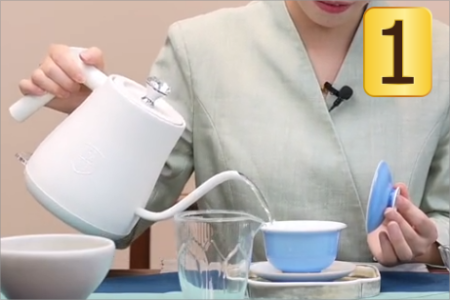
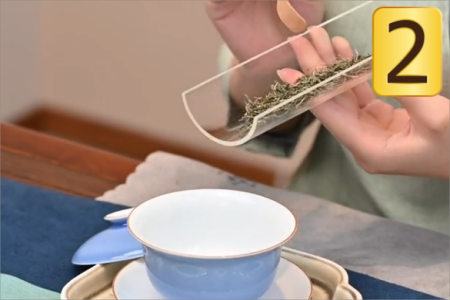
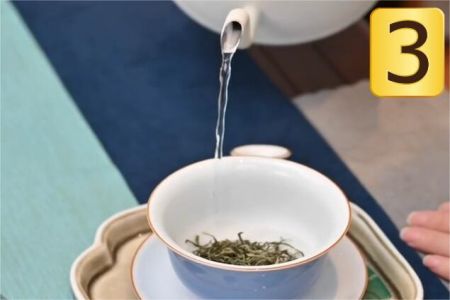
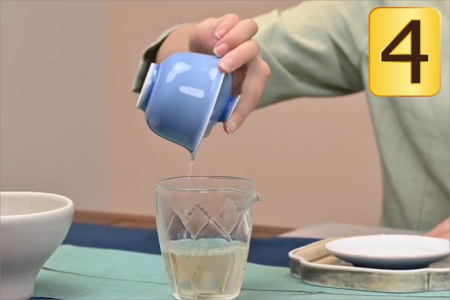
Special Notice to Brew the Best Xinyang Maojian Tea
Here are three specialized tips to help you brew the best Xinyang Maojian tea, ensuring each cup captures the full essence of this exquisite maojian green tea.
Tip 1: Side Pouring Technique
A key aspect of brewing Xinyang Maojian tea is how the water is introduced to the leaves. Instead of pouring directly onto the tea, which can shock the delicate leaves and release bitterness, use a side pouring technique. Aim the stream of hot water at the inner wall of the gaiwan or the teapot. This allows the water to gently cascade over the leaves, ensuring a more even and gentle steeping, which brings out the xinyang maojian tea’s natural sweetness and complex flavor profiles.
Tip 2: Ensuring Clean Flavor Between Brews
After the steeping time (usually around 5 seconds for the first infusion), it is crucial to pour out all the tea liquor. This practice, known as complete decanting, prevents any residual liquid from stewing the leaves and introducing unwanted bitterness in subsequent brews. Ensure that the gaiwan or teapot is entirely emptied after each infusion. This meticulous attention to detail ensures that each cup is as fresh and vibrant as possible, highlighting the mao jian tea’s delicate floral and grassy notes.
Tip 3: Lid Management After Brewing
Once you have decanted the xin yang mao jian tea, immediately open the lid of the gaiwan or teapot. This is not just about preventing over-steeping; it’s crucial for maintaining the integrity of the leaves. Leaving the lid on can create a mini sauna inside, which can “smother” the leaves, making them limp and potentially altering their natural flavor profile. By removing the lid, you allow the leaves to cool down slowly, preserving their structure and ensuring that their flavor remains true and clear for future infusions.
Frequently Asked Questions about Xinyang Maojian Tea
Xinyang Maojian tea is a distinguished green tea from Henan Province, China, renowned for its delicate, slender leaves and a refreshingly sweet flavor profile. Harvested early in the spring from the mountainous regions of Xinyang, only the tenderest buds and top leaves are selected, ensuring a high-quality brew. This mao jian tea is celebrated not only for its light, aromatic taste but also for its deep cultural significance in Chinese tea history. As one of the ten famous teas of China just like lapsang souchong and keemun black tea, Xinyang Maojian's processing involves a series of meticulous steps that preserve its natural aromas and flavors, making it a favorite among tea connoisseurs.
While Xinyang Maojian tea does contain caffeine, the level is generally lower than black teas and coffees. Its calming effects, thanks to the presence of the amino acid L-theanine, make it a suitable choice for late afternoon or early evening consumption for most people. The L-theanine helps to moderate the stimulative effects of caffeine, providing a relaxed alertness that can ease the transition into the evening without significantly impacting sleep for most xin yang mao jian tea drinkers.
Xinyang Maojian tea does contain caffeine, but it has significantly less caffeine compared to coffee. On average, a typical cup of green tea like Xinyang Maojian contains about 20-30 milligrams of caffeine per 8-ounce serving. In contrast, an 8-ounce cup of coffee generally contains approximately 95 milligrams of caffeine. This makes Xinyang Maojian tea a milder choice for those who are sensitive to caffeine or looking to reduce their caffeine intake.
When considering whether it's better to drink Xinyang Maojian tea or coffee, the answer largely depends on your caffeine sensitivity and health goals. Xinyang Maojian tea offers a lower caffeine option with the added benefits of antioxidants such as catechins, which are known for their anti-inflammatory and cancer-fighting properties. Additionally, the presence of L-theanine in green tea can help smooth out the stimulant effects of caffeine, providing a more balanced boost of energy without the jitters or crash often associated with coffee.
Yes, Xin Yang Mao Jian tea is well-suited for multiple infusions. The first brew often highlights its delicate and refreshing flavor, while subsequent infusions draw out a deeper, fuller taste from the leaves. To achieve the best results, slightly increase the steeping time and slightly decrease the water temperature with each subsequent brew. This method allows the more subtle flavors and aromas locked within the leaves to fully emerge, offering a different experience with each cup. This makes Xinyang Maojian not only a delicious choice but also an economical one, as the same leaves provide several servings of high-quality tea.
The ideal time to purchase Xinyang Maojian tea is shortly after its harvest in the spring, typically around the Qingming festival in early April. Buying the tea during this time ensures that you are getting the freshest possible leaves with vibrant flavors and aromas. Spring harvests are often favored for green teas because the cooler temperatures lead to slower leaf growth, which concentrates the flavors. The fresh spring Xinyang Maojian will have a livelier and more delicate profile compared to tea from later harvests.
High-quality Xinyang Maojian tea is characterized by its appearance, aroma, and taste. The leaves should be uniformly small, tightly rolled, and have a bright green color, indicative of careful handling and minimal oxidation. When infused, the tea should offer a clear, pale green liquor and a fresh, vegetal scent with hints of sweetness. The taste should be clean and smooth, without any harshness or overpowering bitterness. Additionally, the leaves should unfurl nicely when steeped, indicating they were picked young and processed correctly.
Proper storage is crucial for maintaining the freshness and flavor integrity of Xinyang Maojian tea. It should be stored in a cool, dry place away from direct sunlight, moisture, and strong odors which could alter its delicate flavors. An airtight container is ideal for preserving the tea's quality, preventing air exposure which can lead to staleness. Avoid plastic containers as they can impart unwanted flavors and instead opt for glass, ceramic, or metal containers. Properly stored, Xin Yang Mao Jian tea can maintain its freshness and aromatic profile for up to a year, allowing you to enjoy its vibrant taste for longer.
Xinyang Maojian stands out from other green teas due to its unique cultivation environment and artisanal processing techniques. Grown in the cool, misty mountains of Xinyang, the tea benefits from a microclimate that imparts a distinct sweetness and depth to its leaves. Unlike other green teas such as Bi Luo Chun tea and Lu'an Melon Seed Tea, Xinyang Maojian undergoes a rigorous selection process where only the finest buds and leaves are chosen. During processing, the leaves are gently pan-fired to stop oxidation, which preserves their delicate flavors and light green color. These meticulous practices result in a tea that is not only refreshing and mildly sweet but also rich in aroma and devoid of the bitter undertones often found in lesser green teas.
More Information about Xin Yang Mao Jian Tea
What Is Xin Yang Mao Jian Tea
Xinyang Maojian tea is one of China’s most famous traditional green teas, originating from the lush, misty mountains of Xinyang in Henan Province. The name “Maojian” translates to “hairy tips,” which refers to the fine white hairs that cover the young leaves used to make this tea. This distinctive feature is one of the markers of its high quality and delicacy.
The history of Xinyang Maojian tea dates back several centuries, with its cultivation and brewing techniques being perfected over generations. This tea has been a revered component of Chinese tea culture, celebrated for its exquisite quality and health-promoting properties. The tea leaves for Xinyang Maojian are harvested early in the spring, ensuring that only the youngest, most tender leaves are selected, which contributes to the tea’s fresh and subtle flavor profile.
In terms of structure, Xinyang Maojian tea leaves are known for their slender and tightly rolled shape, with a bright green color that hints at their vibrant taste. When brewed, the tea offers a clear, pale infusion that is both smooth and aromatic, characterized by a slightly sweet aftertaste and a refreshing crispness that makes it a favored choice among green tea lovers. This tea not only captivates with its delicate flavors but also embodies a rich cultural heritage, making it a prestigious choice for those seeking to experience the essence of Chinese green teas.
What Does Xinyang Maojian Tea Taste Like?
Xinyang Maojian tea offers a uniquely refined flavor that sets it apart in the rich tapestry of Chinese green teas. Known for its delicate yet distinct profile, this Xin Yang Mao Jian tea captures the essence of the misty mountains of Henan Province, where it is cultivated. Upon the first sip, one is greeted with a clean, crisp freshness reminiscent of spring water, followed by a subtle yet intricate blend of natural sweetness and a light floral undertone.
The immediate impression is of a gentle, vegetal taste, similar to freshly picked young leaves or the first grass of spring, which then transitions into a deeper, almost buttery smoothness. This smoothness is punctuated by a slight astringency that tickles the palate, creating a balanced interplay that enhances the tea’s refreshing nature. The floral notes, often compared to the scent of jasmine or orchid, are not overpowering but woven seamlessly into the flavor profile, adding a layer of complexity that intrigues the senses.
Xinyang Maojian’s light body belies its depth of flavor. Each cup offers multiple layers that unfold gradually, inviting the drinker to discover hints of nuttiness and a clean, lingering aftertaste that refreshes and satisfies. This aftertaste, sweet and enduring, is one of the hallmarks of high-quality Xinyang Maojian tea, leaving a pleasing flavor that compels another sip.
The overall tasting experience of Xinyang Maojian tea is one of elegance and sophistication. It is a tea that does not overwhelm but instead delicately charms its way into the favor of those who appreciate the subtleties of a well-crafted green tea. This tea is perfect for moments of quiet reflection or as a graceful accompaniment to a light meal, providing a beverage that not only delights but also refreshes and rejuvenates.
What Makes Xin Yang Mao Jian Tea So Special?
Xinyang Maojian tea distinguishes itself as a special green tea through a combination of unique regional factors, artisanal craftsmanship, and a celebrated history. Originating from the mist-covered, high-altitude regions of Xinyang in Henan Province, this tea benefits from an ideal growing climate that contributes significantly to its distinct flavor profile. The cool temperatures and frequent mists slow down the growth of the tea bushes, allowing the leaves to develop a greater concentration of flavors and aromatic oils.
The tea leaves are harvested early in the spring, capturing the plants at their peak of freshness and vitality. Only the finest buds and young leaves are selected, ensuring a product of unmatched quality. This careful, selective harvesting is crucial in defining the tea’s delicate and nuanced taste. Xinyang Maojian’s production process, which meticulously preserves the natural qualities of these young leaves through expert pan-frying techniques, further distinguishes it from other teas. This method not only enhances the leaf’s inherent flavors but also locks in the fresh, crisp characteristics that are the hallmark of Xinyang Maojian.
Moreover, the cultural heritage of Xinyang Maojian tea adds to its specialness. It is a tea with deep historical roots, often featured in ancient Chinese literature and celebrated in the local tea culture for centuries. This rich history is infused in every cup, providing tea lovers not only with a refreshing beverage but also a sip of China’s rich cultural legacy.
Xinyang Maojian Tea’s Health Benefits
1.Rich in Antioxidants
Xinyang Maojian tea is packed with antioxidants, particularly epigallocatechin gallate (EGCG), which is known for its health-promoting properties. These antioxidants help neutralize harmful free radicals, reducing oxidative stress and lowering the risk of chronic diseases such as heart disease and cancer. Regular consumption of this tea can also enhance skin health, protecting against premature aging and environmental damage.
2. Enhances Cognitive Function
The combination of caffeine and L-theanine in Xinyang Maojian provides a unique blend that enhances cognitive functions. This synergy improves concentration, reaction time, and memory recall while providing a steady release of energy. Unlike the abrupt boost from coffee, the effect from green tea is more balanced, preventing the common midday crash and supporting sustained mental engagement.
3. Cardiovascular Benefits
Drinking Xinyang Maojian tea can positively impact cardiovascular health. Its high antioxidant content helps reduce the oxidation of LDL cholesterol, a key contributor to heart disease. Regular drinkers of this green tea have a lower risk of developing hypertension and other heart-related conditions. Additionally, the anti-inflammatory properties of the tea help maintain healthy blood vessels, further protecting the heart.
4. Weight Management
Xinyang Maojian tea assists in weight management by boosting metabolism and increasing fat oxidation. The presence of catechins in the tea speeds up the body’s natural fat-burning processes, making it an excellent addition to any weight loss program. Regularly including Xinyang Maojian in your diet can help maintain a healthy weight and prevent obesity-related health issues.
5. Digestive Health Support
Xinyang Maojian tea is known for its beneficial effects on the digestive system. It aids in the digestion of fats and proteins, which can help alleviate symptoms of indigestion and bloating. Its mild astringency helps tighten the lining of the digestive tract, acting as a tonic for the stomach. Drinking this tea regularly can also help prevent the discomfort associated with overeating and enhance overall digestive health.
Is There Any Potential Side Effects of Drinking Xin Yang Mao Jian Tea
While Xinyang Maojian tea is celebrated for its delightful taste and health benefits, it’s important to consider that, like any tea containing caffeine, it may have some side effects for certain individuals:
Pregnancy Considerations: Pregnant women should be cautious with their intake of Xinyang Maojian tea due to its caffeine content. While moderate caffeine consumption is often considered safe during pregnancy, excessive intake can be risky. It is recommended that pregnant women limit their caffeine intake to less than 200 mg per day, as higher amounts have been associated with an increased risk of miscarriage and other negative effects on fetal development.
Increased Heart Rate: Some individuals may experience an increase in heart rate due to the caffeine in Xinyang Maojian tea. This effect can be particularly noticeable in those who are not regular caffeine users or who may be sensitive to stimulants. Those with certain cardiovascular conditions should consult their healthcare provider to ensure safe consumption levels of caffeinated teas like Xinyang Maojian.
Interactions with Medications: Xinyang Maojian tea can potentially interact with certain medications, affecting their absorption and efficacy. For example, its caffeine content can increase or decrease the rate at which some drugs are metabolized in the body. Additionally, the antioxidants in the tea might interfere with the actions of drugs like blood thinners and chemotherapy treatments. It’s important for individuals on prescribed medications to discuss their tea consumption with a healthcare professional to avoid any adverse interactions.
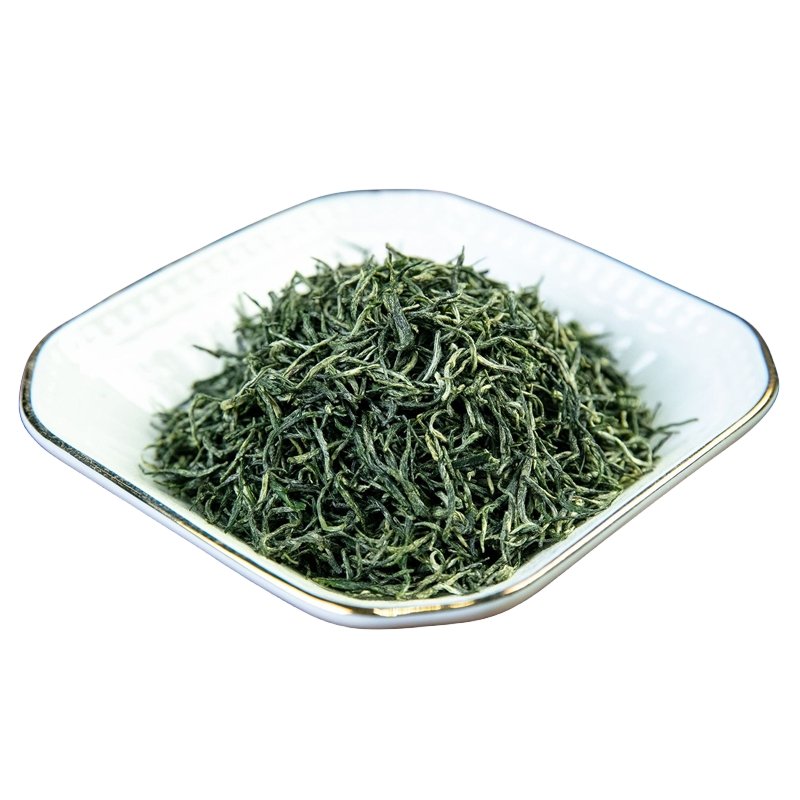
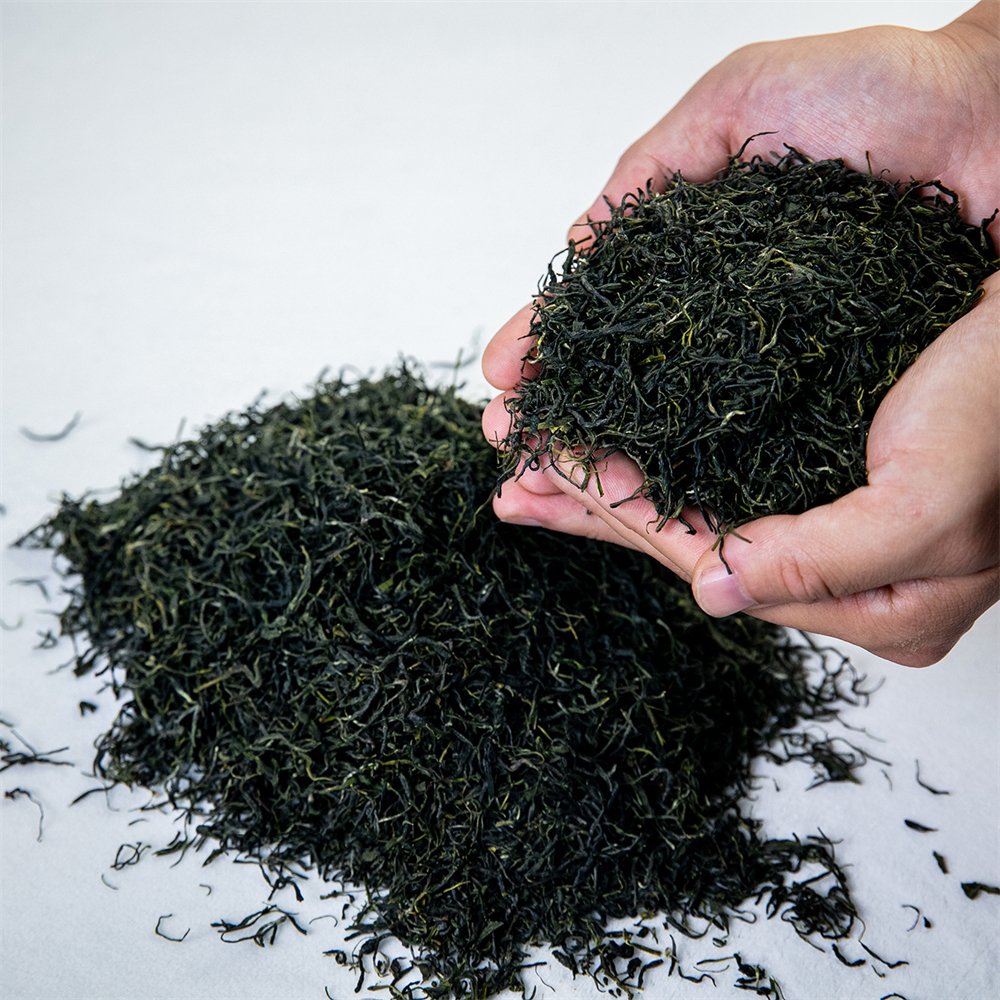
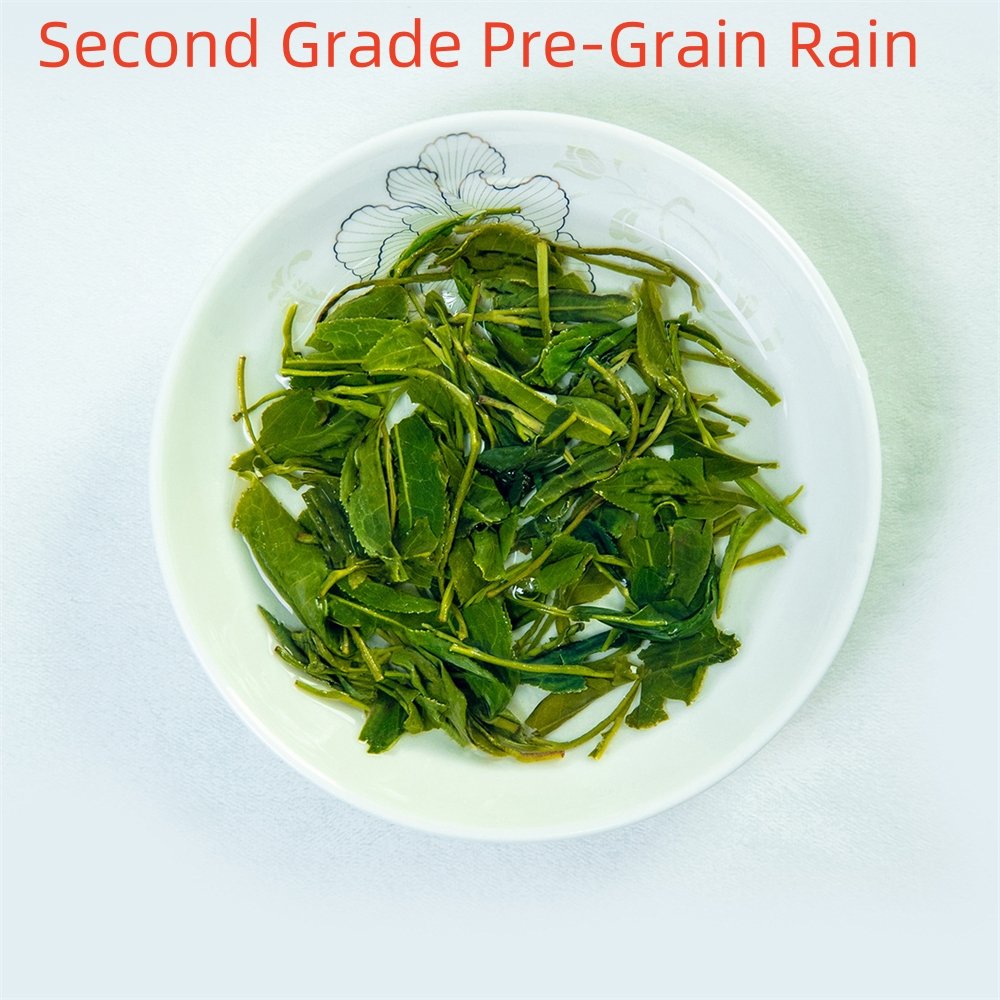
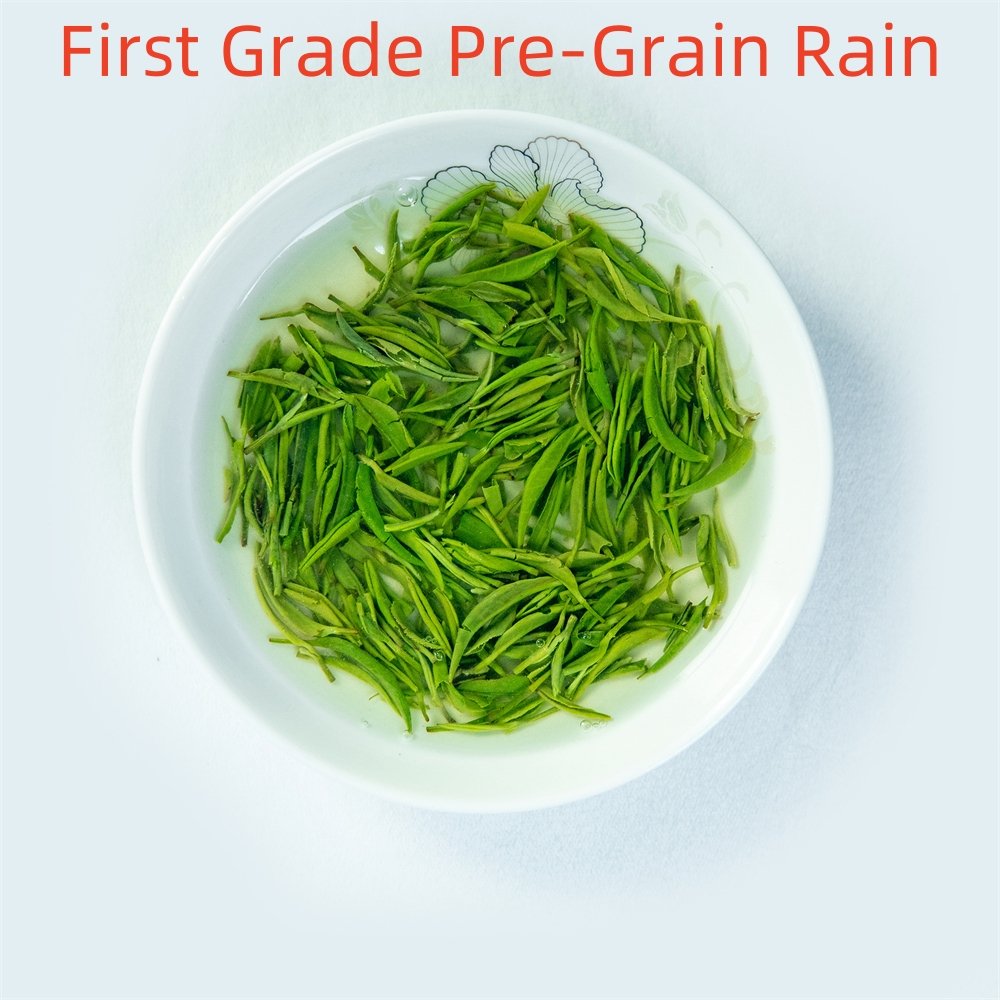
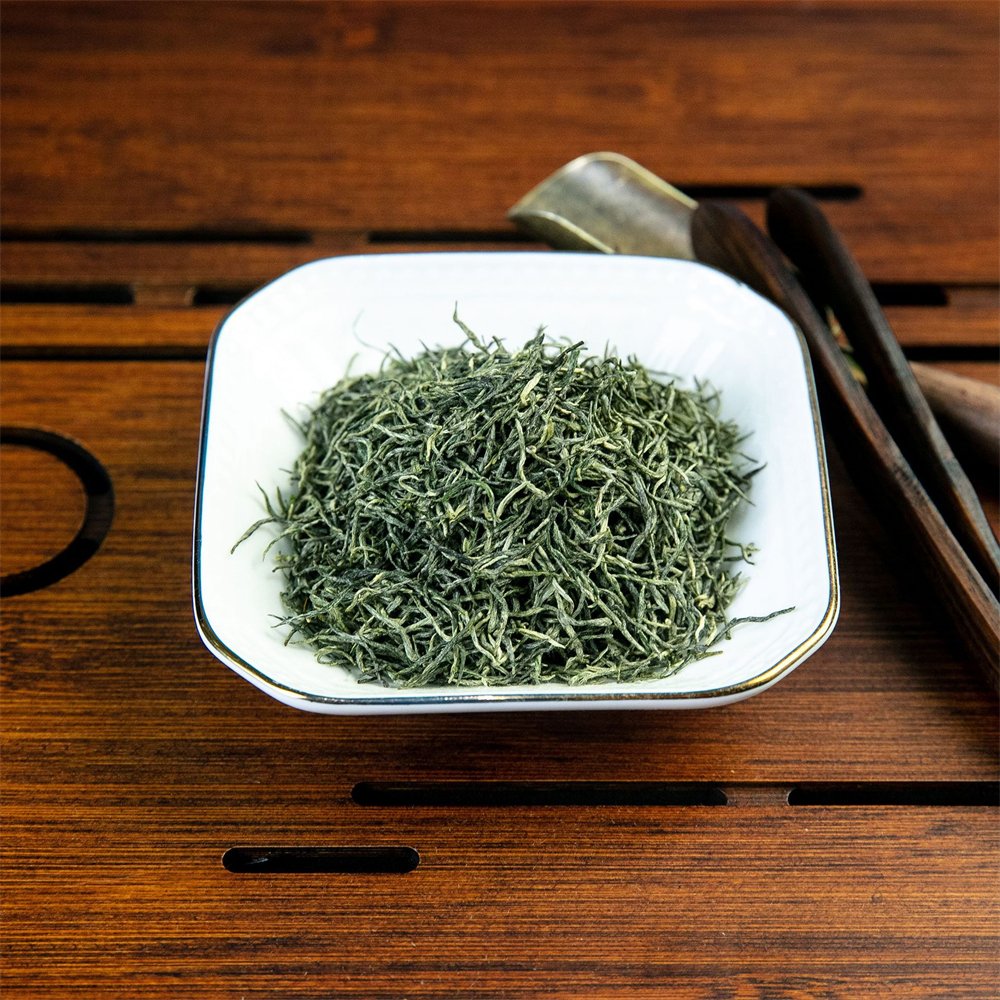
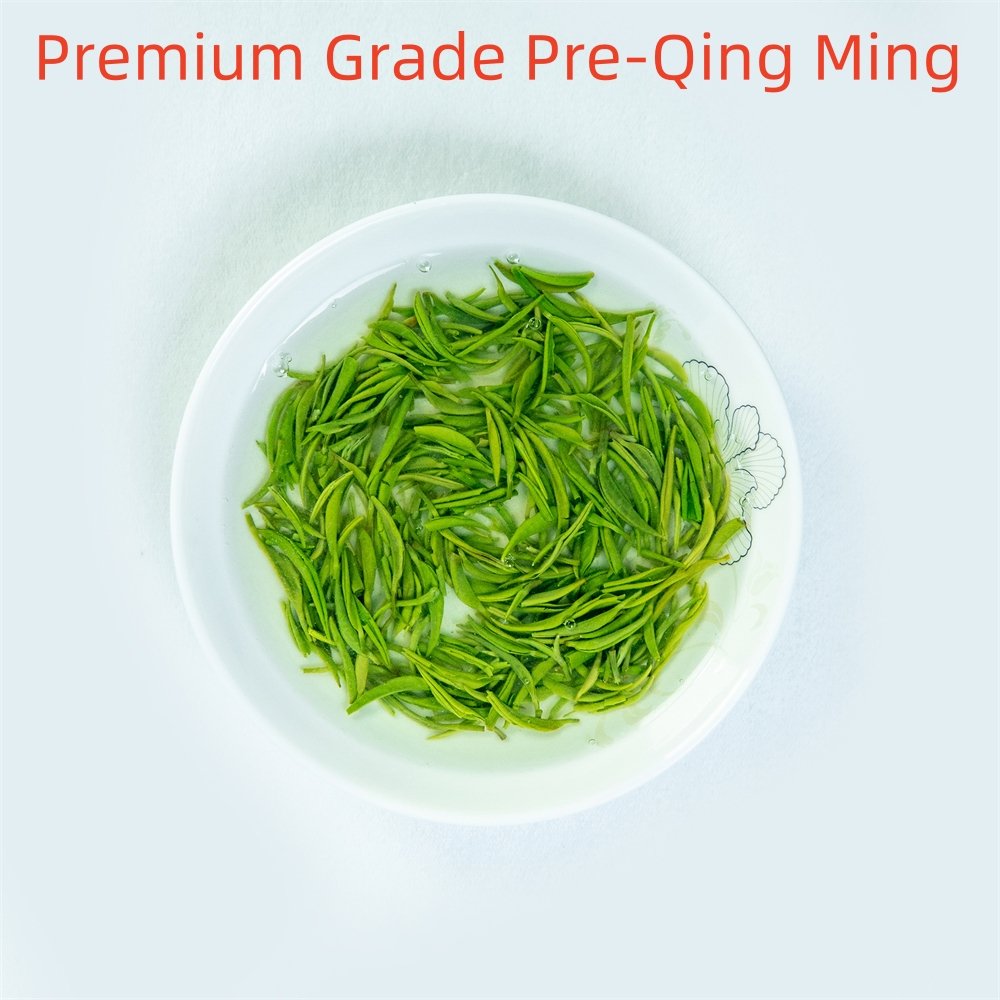
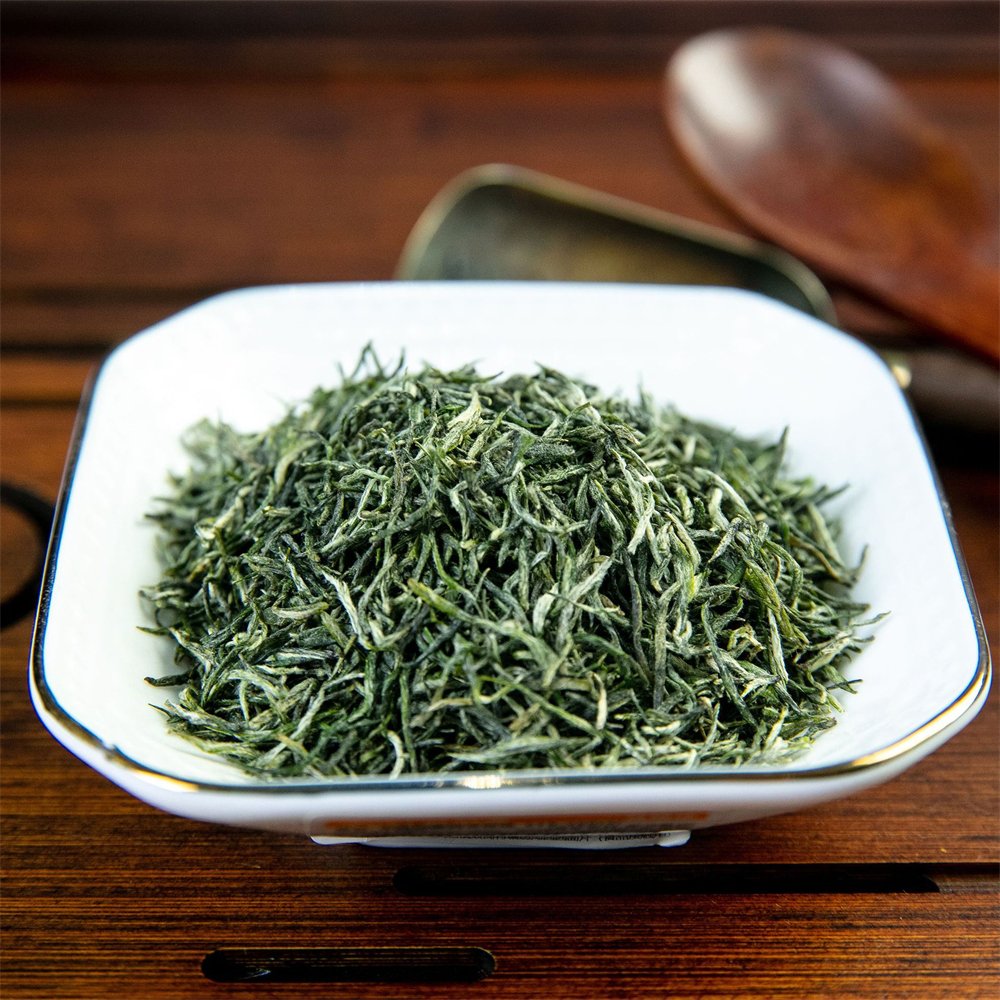
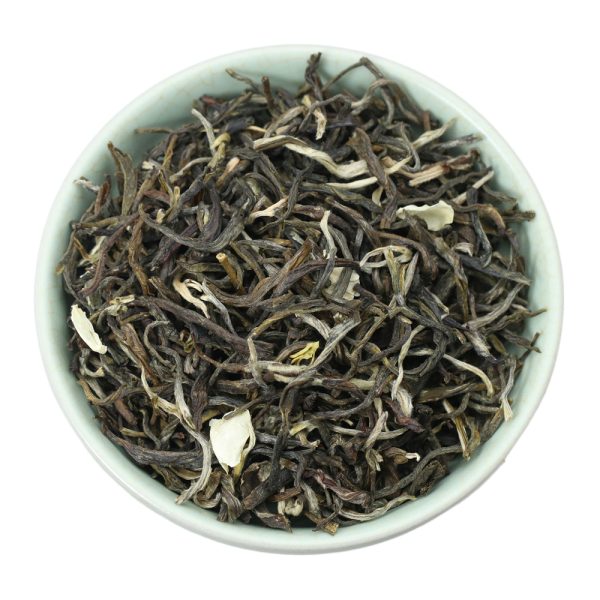
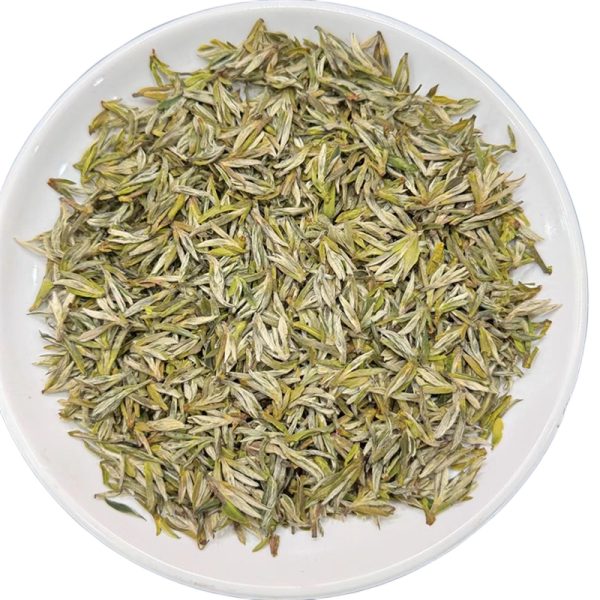
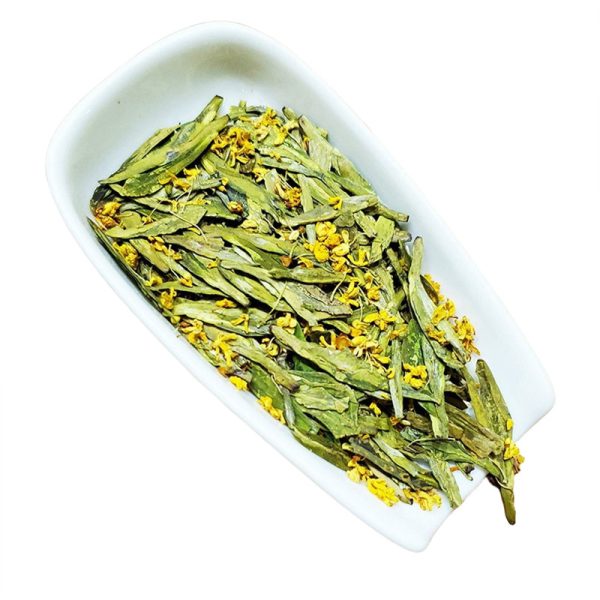
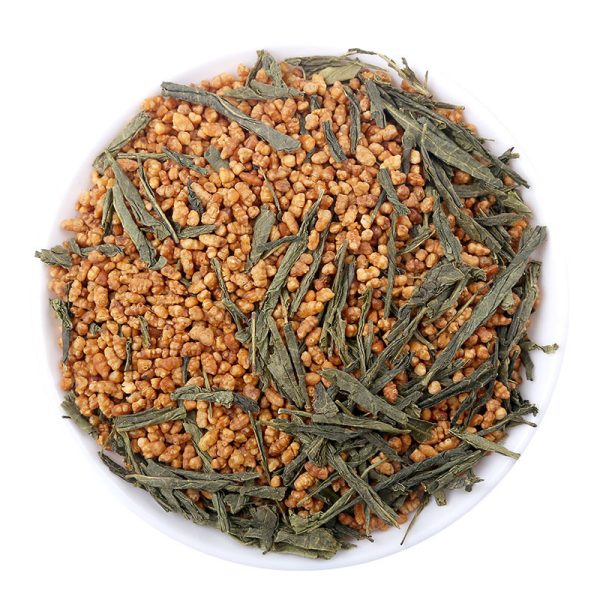
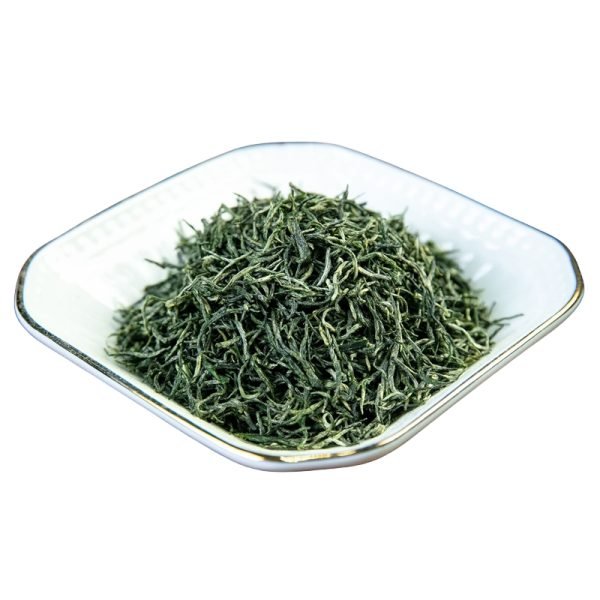
6 reviews for Xinyang Maojian Green Tea from Xinyang County Henan Province